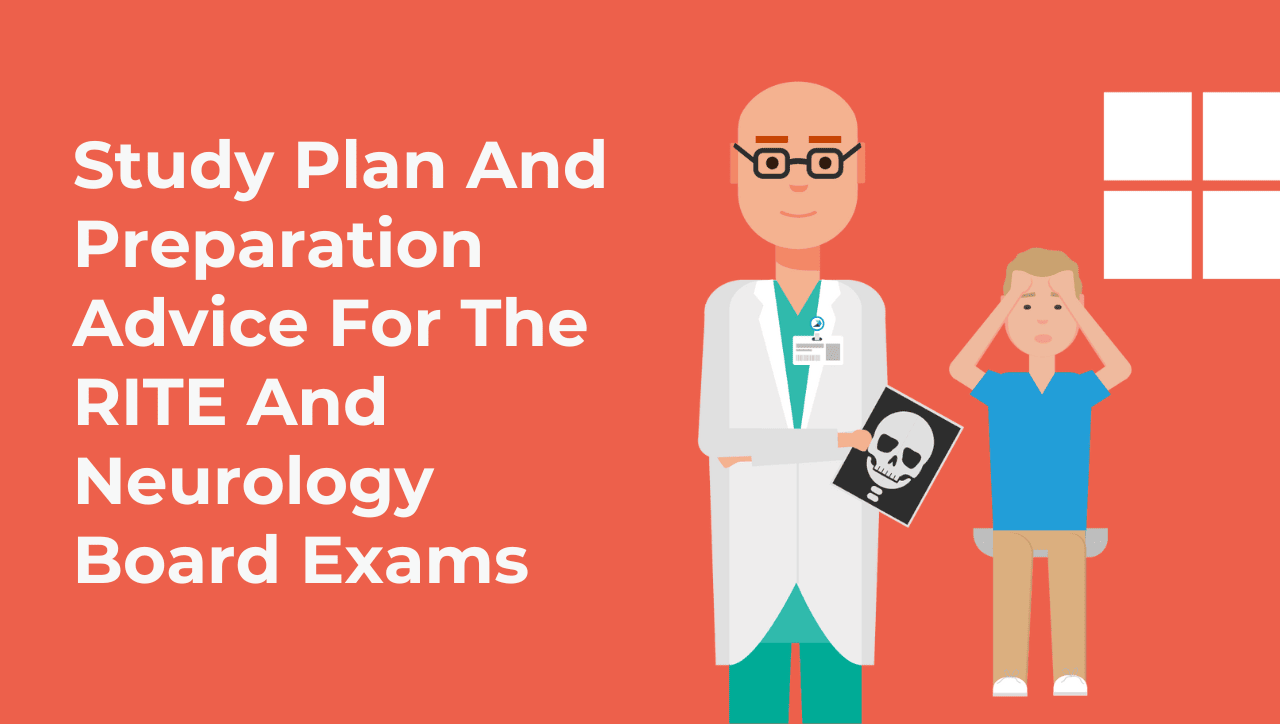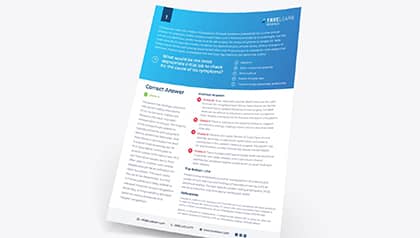How I Studied for the Neurology RITE® Exam [Study Tips Series]
Andrew Garrett of San Diego, CA recently completed his neurology residency in 2019 and took the ABPN Neurology Certification exam. He has a few tips for those interested in how to study for neurology RITE® exam.

What Was Your Study Style?
In one word, consistent.
Your Study Location is Important
I have to study at work because my house is too hectic and is too easy for me to be distracted when I’m at home. When I get to work early to study, I can be alone without interruption from others and I can get some studying done before I need to begin my typical day.
Make a Study Schedule
I studied in the morning. During medical school I used to study at night, but realized very quickly that it is too easy to blow off studying at the end of the day because I am usually tired. I usually get up at 5:00 to go to the gym and then get to work to get studying done before I need to start seeing patients.
Use Tools that Fit Your Learning Style
I really like reading paper books, including textbooks. Unless I am doing questions from a question bank, I try to stay away from screens because I’ll get distracted too easily. For the ABPN Board Examination, I used review books and AAN-published journals (Continuum). I love reading paper books, but paper books are not enough for exam prep. You have to have questions to continually test your knowledge during study prep and to help build endurance on exam day. I did at least 50-100 questions every day from either Continuum, textbooks, or online questions banks. That was the single most important factor in helping me to focus my study time on my weaknesses and helping me know what was going to be tested on the exam. I used a similar strategy for the RITE.
Review All Content, Then Narrow Your Focus
By doing questions from review books or RITE® question banks, I can have a better idea of what content is repeatedly be asked and what content is not as likely to be asked. Then when I am done with questions, I can more carefully focus on reading the material that I know will be asked. This helps me know what to expect on exam day, and helps me to prioritize the level of detail I should expect to know for certain concepts over others.
Balance Studying with Other Priorities
I have 5 children, so I usually do not study in the evenings because I need to spend time with my family. If I didn’t make time in other ways to study (like getting up early), I would either have to neglect my other priorities or not study at all. Balance comes by eliminating things that don’t matter, especially during test prep time, knowing that you can return to some of those things after the exam is over. You may even find that some of those less important things aren’t really worth the time it takes to pursue them anyway.
Change Your Study Methods, if Needed
Reviewing class notes and re-watching old lectures was not a very efficient use of my time in medical school. I found I did much better when I supplemented my medical school coursework with other sources, including review books and question banks. This helped me to realize what the most important details were to be learning from the lectures, and it make my study time much more efficient.
Be Disciplined and Consistent
Schedule dedicated study time during a time of day when you know you’ll be least prone to distraction, and be dedicated enough to be loyal to that time. Make a schedule with daily and weekly goals, and make specific goals for board prep time, including number of review questions to complete before test day, number of books to read, etc. Make yourself a spreadsheet or chart to help you track your progress, and make sure you keep up in order to reach your goal. You can do it!!


